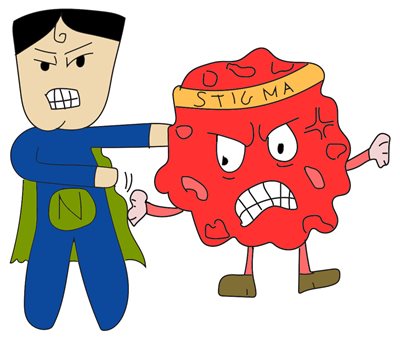Fighting Mental Health Stigma
A person who suffers from mental health issues (as well as his or her family) already faces many challenges in attempting to deal with the factors that impact his or her life. But regardless of the individual situation, a common thread that adds an additional burden is the stigma against those who have mental health problems.
It’s true that we live in more enlightened times than we did a few decades ago. But we still have work to do to eradicate that stigma — ideally, to the point where everyone views seeking treatment for mental health issues no differently than seeking treatment for physiological ailments or diseases.
A recent posting to the National Alliance on Mental Illness (NAMI) website highlighted this issue, pointing out that stigma causes people to feel ashamed for something that is out of their control and prevents many from seeking the help they need and speaking out.
In order to address this problem, NAMI asked members of its Facebook community, “What is the best way to end stigma?” You can see some of their responses in full on this page. Among the suggestions made were:
- Talk openly about mental health.
- Educate yourself and others about mental health.
- Be conscious of your language.
- Encourage equality in how people perceive physical illness and mental illness.
- Show empathy and compassion for those living with a mental health condition.
- Stop the criminalization of those who live with mental illness.
- Push back against the way people who live with mental illness are portrayed in the media.
- See the person, not the illness.
- Advocate for mental health reform.
NAMI has more resources for helping to deal with the stigma of mental illness, including information on its Stigma-Free Pledge, on this page.
– Joe Shorokey, Executive Director, Alta Behavioral Healthcare


